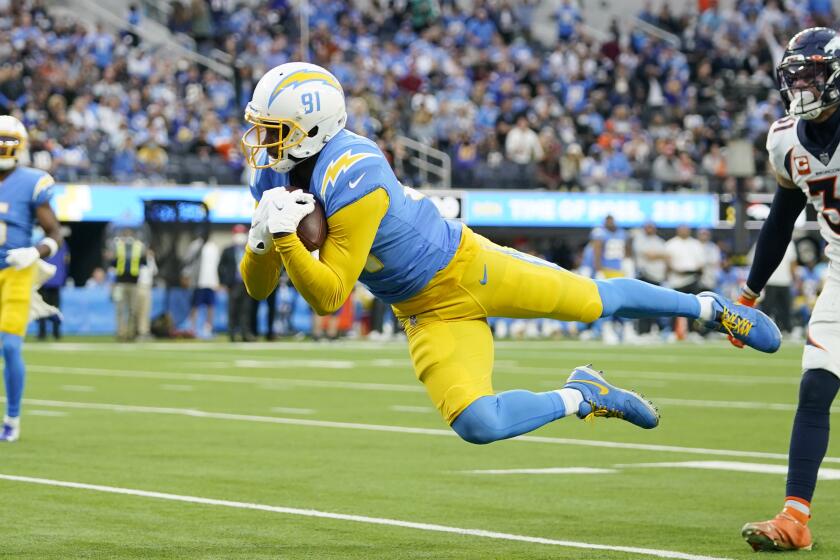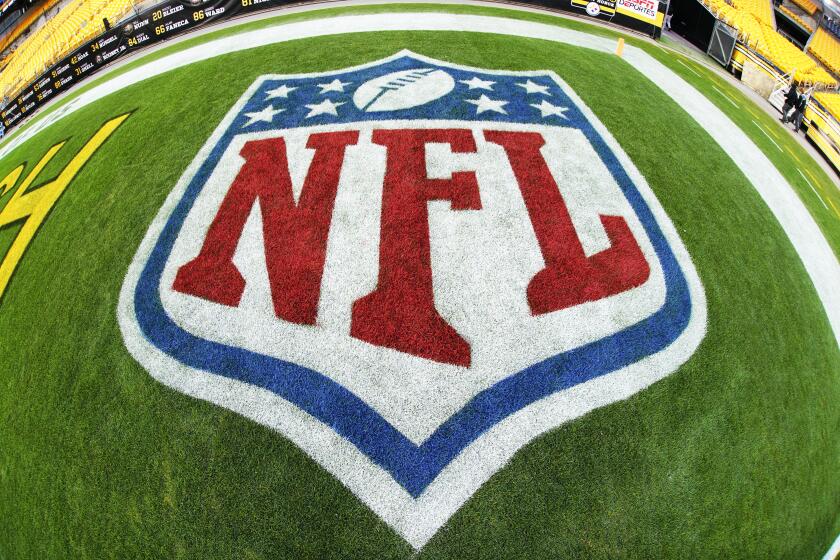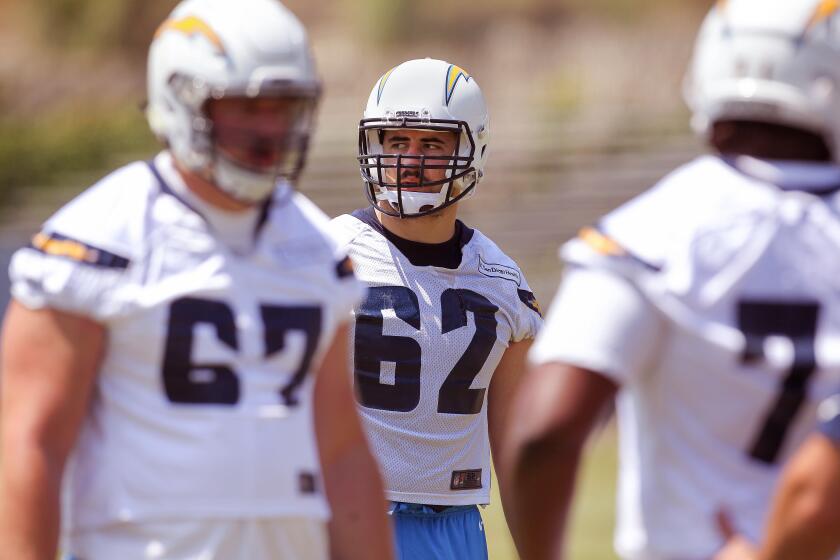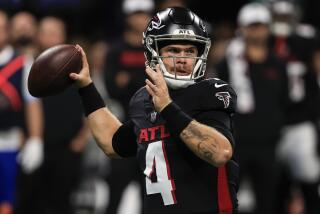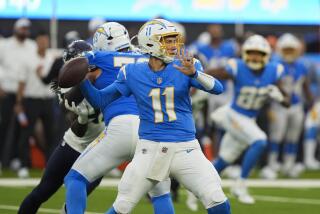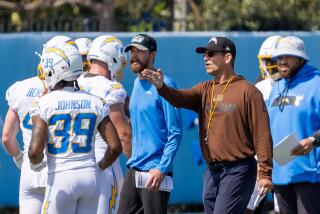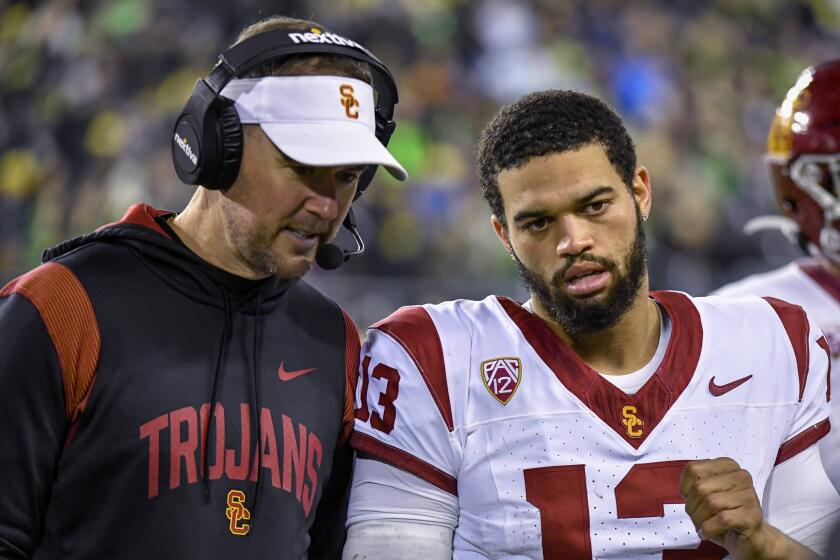Chargers enter combine with no sure-fire pick, but defense seems to be a priority
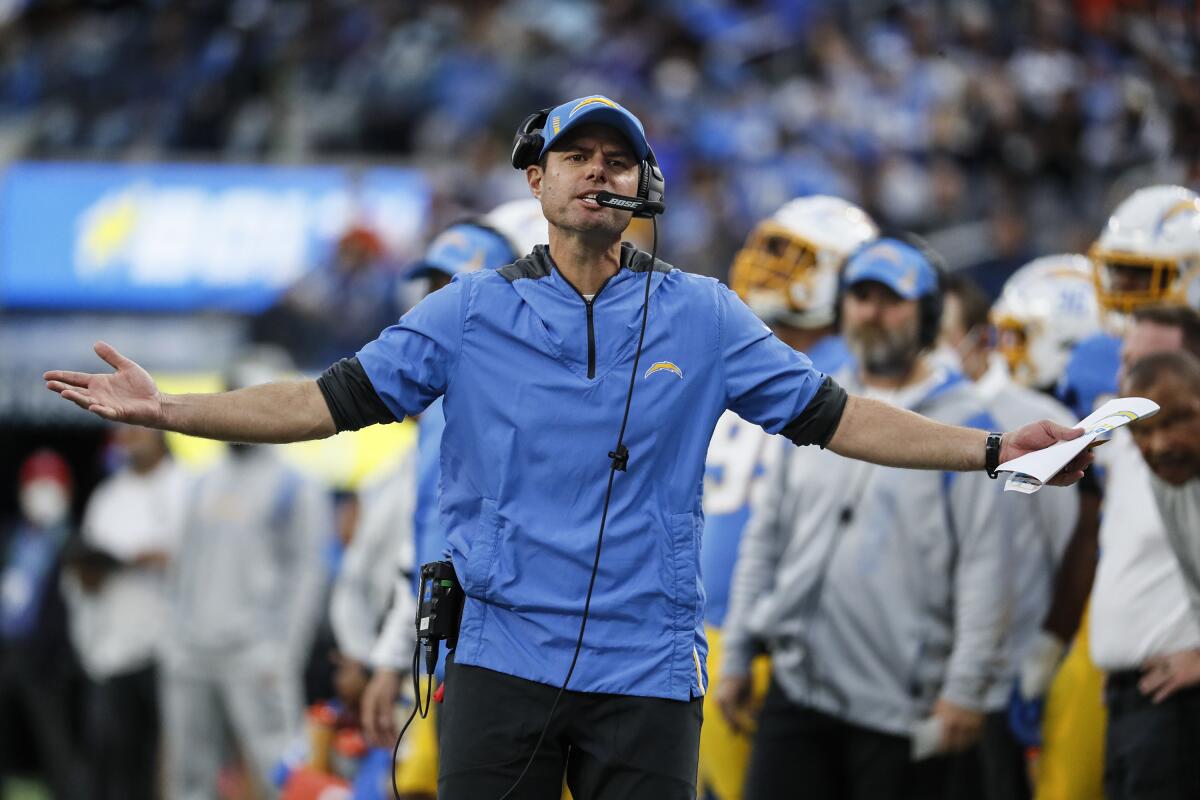
INDIANAPOLIS — Two years ago, the Chargers’ decision was so obvious they didn’t even have to make it; the Miami Dolphins made it for them.
Last year, their decision was just as obvious — once they knew their choice was, in fact, there for the taking.
Forecasting Justin Herbert and Rashawn Slater as first picks for the Chargers in the last two drafts was relatively easy.
But, with the arrival of the 2022 NFL scouting combine, predicting what the team will do with the No. 17 overall selection at the end of April remains tricky.
A quarterback and offensive tackle were glaring needs in 2020 and 2021, respectively, with the Chargers drafting high enough both years to reasonably map out what would happen.
Chargers wide receiver Mike Williams is considered a top candidate to be franchised tagged by the team following his strong 2021 season.
When Miami took Tua Tagovailoa at No. 5, Herbert was an automatic call at No. 6. With Slater still available at No. 13, the Chargers selecting anyone else would have been stunning.
Now, however, their first pick doesn’t come until the second half of Round 1, and there is no consensus yet on what position the Chargers might target.
The latest series of national mock drafts featured general manager Tom Telesco taking defensive tackles, offensive linemen, wide receivers and cornerbacks with that first choice.
There should be more clarity following free agency, which begins with legal tampering on March 14.
But as of today — with so many internal pending free agents and multiple areas in need of an upgrade — the Chargers could go in several directions early in the draft.
Telesco is trying to build on a season that saw the Chargers bounce back under first-year coach Brandon Staley to finish 9-8 and remain in playoff contention until the final second of overtime in the NFL’s last regular-season game.
“I think if you’re objective and you look at our team this season, it’d be hard to say that you don’t see a bright future,” Telesco said in January. “But that’s not to say it’s a finished product. We know that we’ve got work to do.
With the 2021 season over, what’s next for the NFL as it moves toward the 2022 season? Here are the people, places and issues that will be talking points.
“I think it’s an exciting start with what Brandon has put together and what we have together as a team. I think the future’s bright with where we are. … I see this more as a beginning than anything else.”
The next steps include improving a defense that struggled particularly against the run and on third down. The Chargers also face uncertainty most notably on the right side of their offensive line and at wide receiver.
Telesco’s oft-stated preference is to build through the draft — making events such as the combine vitally important — and to use free agency to further bolster the roster.
The Chargers haven’t traditionally been big open-market spenders, though they did sign Pro Bowl selection Corey Linsley a year ago to one of the largest contracts for a center.
They have financial flexibility, possessing the third-most cap space in the league, according to OverTheCap.com.
“I just don’t believe, no matter what cap space you have, you can build a team through free agency,” Telesco said. “You can certainly supplement it. … We’ve always been more selective with [free agency].”
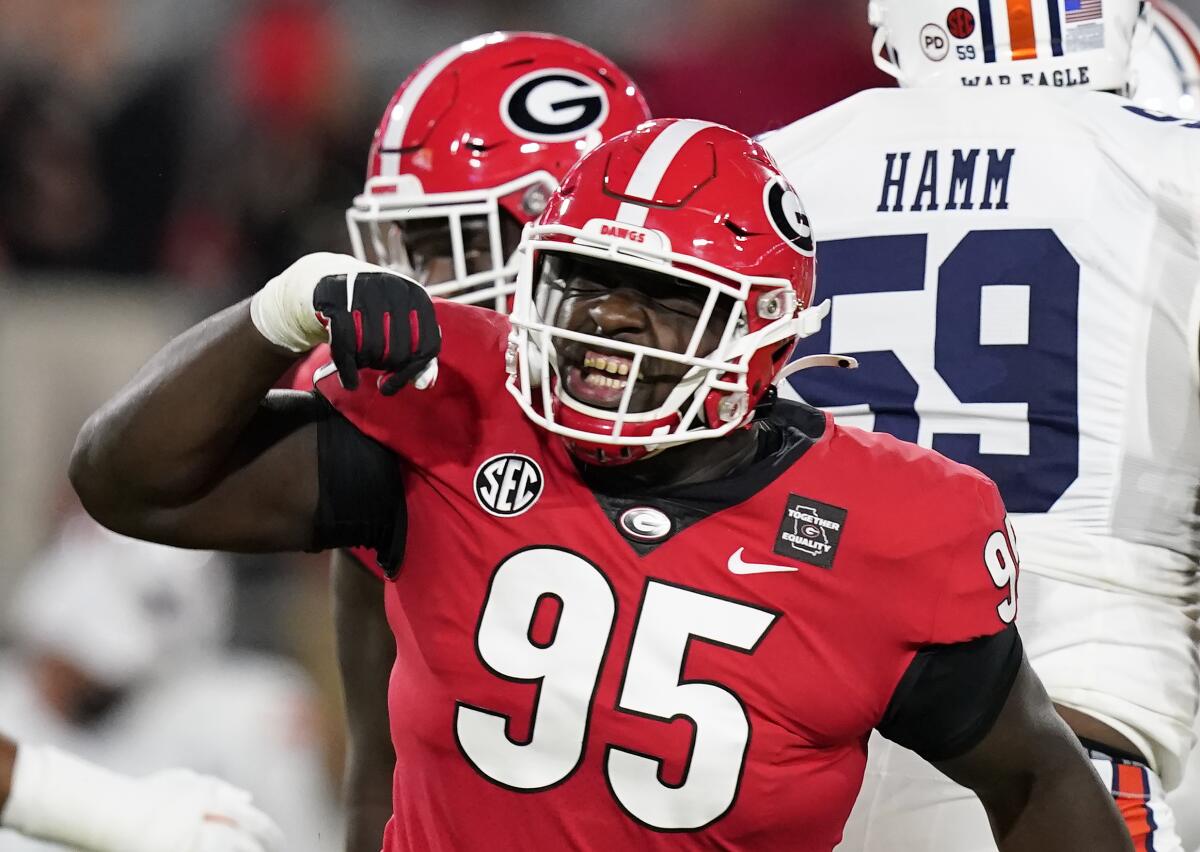
So let’s look closer at the draft and the player most often linked to the Chargers at No. 17: Jordan Davis, a 6-foot-6, 340-pound run-stopping defensive tackle out of Georgia.
A writer for NFL.com called Davis “beefy” and “mountainous,” with “the size, power and will to clog the drain.” Davis won the Outland Trophy (best interior lineman) and Bednarik Award (best defender) while playing for one of the country’s best defenses.
The Chargers had issues all season along their defensive front and the questions now include the futures of pending free agents Justin Jones, Linval Joseph and Christian Covington.
After the season, Staley called improving the line “hugely important” as the Chargers look to construct a defense closer to what he envisioned when hired in January 2021.
Not that Davis is a sure thing. More recent evaluation has questioned his endurance and pass-rush ability, noting how rarely he pressured quarterbacks in college. Some observers no longer have Davis going in the first round.
Former USC and Chargers center Max Tuerk was suffering from CTE at the time of his death. His parents are trying to make sense of what happened to him.
The NFL Network’s Daniel Jeremiah, who also is the color analyst on Chargers radio broadcasts, last week said he believes Davis will be drafted in the range of Nos. 10-20.
Jeremiah called Davis “a pretty polarizing player” among talent evaluators. He talked about how much Davis struggled against Alabama when the Crimson Tide offense went up-tempo and Davis couldn’t get off the field for a break.
“Obviously, he’s a giant,” Jeremiah said. “He’s enormous. He’s really got some knock-back to him as a pass rusher. … He’s got range against the run. The big questions on him are how much can you play him and how big is his gas tank.”
There are those questions and plenty of others facing the Chargers, questions that will be answered over the next several weeks as their offseason starts finding its focus.
More to Read
Go beyond the scoreboard
Get the latest on L.A.'s teams in the daily Sports Report newsletter.
You may occasionally receive promotional content from the Los Angeles Times.

